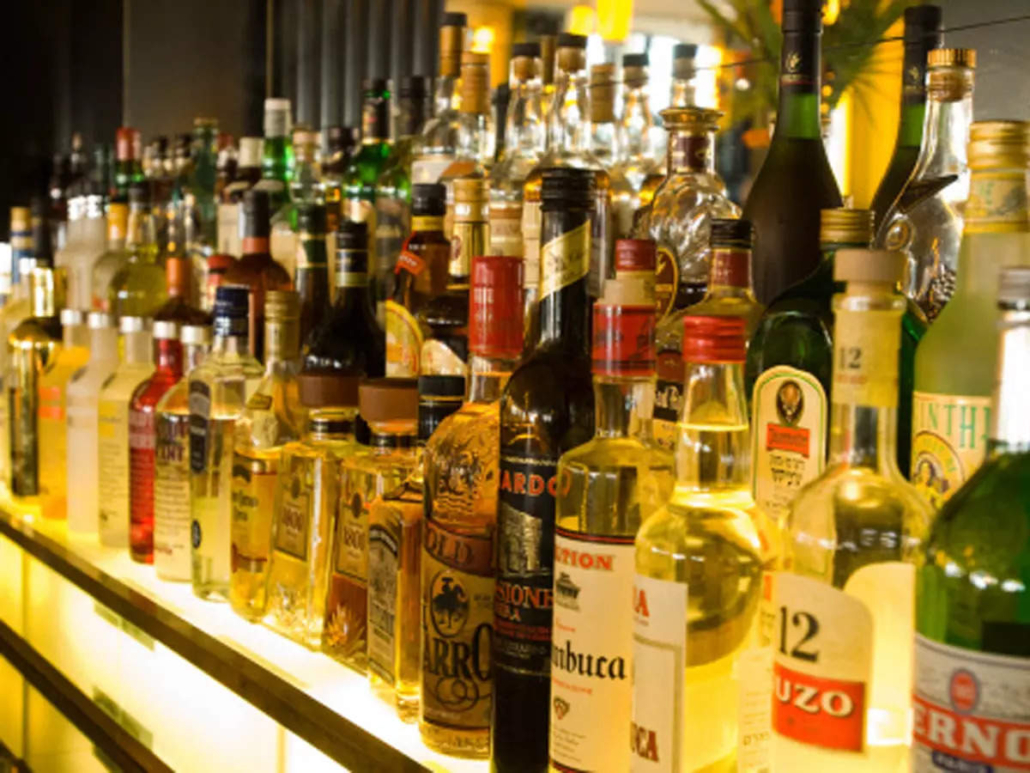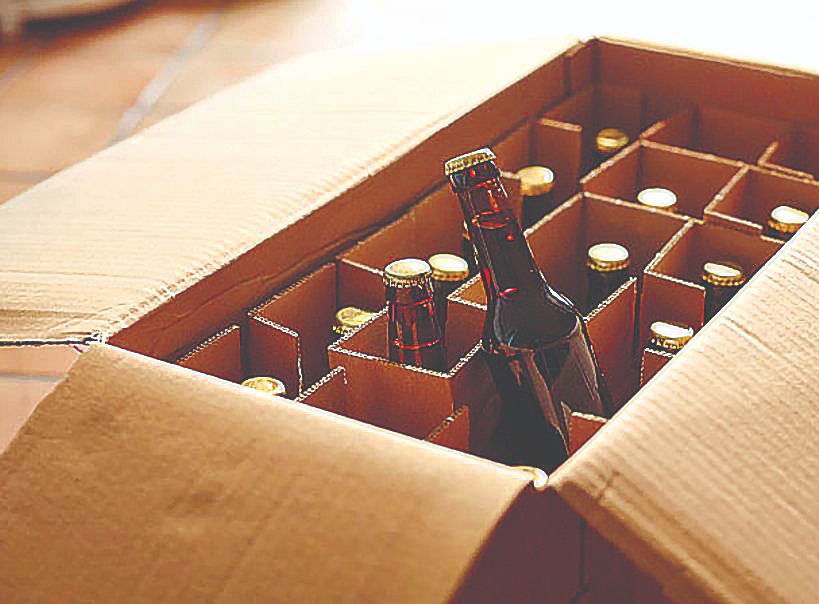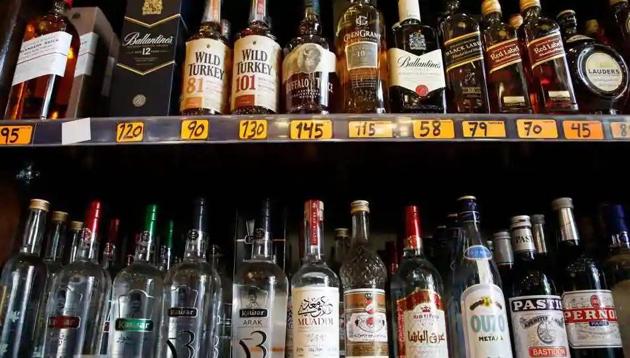The Chandigarh Administration increased the excise levies on Indian Made Foreign Liquor (IMFL) by approximately 6 per cent in the new UT Excise policy for the year 2021-22, released on Wednesday.
The new policy was approved by UT Administrator V P Singh Badnore after a detailed presentation by the Adviser to the Administrator, Secretary (E&T), ETC and other senior officers of the Excise Department.
“The new Excise Policy aims at balancing the aspirations of the consumers, manufacturers, wholesalers/ retailers and the government,” said a statement issued by the administration. UT said that the Excise Policy for the year 2021-22 will help to earn revenue approximately Rs 700 crore.

Finance Secretary-cum-Secretary (E&T), Deputy Commissioner-cum-Excise & Taxation Commissioner and other Senior Officers of the Excise Department, has approved new Excise Policy for the year 2022-23. The new Excise Policy aims at balancing the aspirations of the consumers, manufacturers, wholesalers/retailers and the Government. Some of the salient features of this Policy are:
- 65 degree proof of Country Liquor has been introduced apart from the existing 50 degree proof and 60 degree proof. This will increase choice for the consumers and make better quality of Country Liquor available.
- To curb spurious liquor, pilfer proof seals made mandatory in Country Liquor bottles.
- Only 50% of the basic quota of Country Liquor will be distributed equally amongst the Bottling Plants and 50% of the basic quota will be kept open. Further, additional quota will also be kept open. This will increase choice to the Retail vends to obtain supplies as per their choice of bottling plant and brand.
- Overall basic quota has been reasonably increased by 13.4% as per consultation with stakeholders.
- Imported RTD (Ready to Drink) has been allowed for sale in U.T. Chandigarh.
- The allotment of Retail Vends of Liquor will be made through e-tendering system for more transparency.
- Online facility for issuance of permit/passes and applying various Excise Licenses has been introduced to facilitate stakeholders.
- EMD (Earnest Money Deposit) has been reduced for better participation in the bids.
- Mandatory computerized billing to be introduced by 1st October, 2022 and penalty of Rs. 5000/- introduced on non-issuance of receipt.
- Covid rebate (i.e. Pro-rata reversal of license fees) as given in the last year to continue to all retail vends, bars, restaurants, hotels, clubs etc.
- Facility of 2 hour extension in closure timings (i.e. up to 3 AM) given to Restaurants / Bars / Hotels on payment of additional license fees.
- Round the clock service of liquor also allowed in 3 Star & 4 Star Hotels on payment of additional license fees.
- Track & Trace system to be introduced during this policy year to curb illegal sale of liquor.
- Stringent penalty for non-maintenance of Minimum Retail Sale Price by liquor vends introduced. Vends to be sealed for 3 days on first violation itself.
- CCTV cameras to be introduced in all retail vends by 1st May, 2022.
- Penalty of Rs. 50,000/- introduced on sale of expired liquor by retail vends.
- E-Vehicle Cess introduced in pursuance of E-Vehicle Policy of Chandigarh Administration. The Cess will be levied per Bottle varying from Rs. 2 to Rs. 40.
- To promote low alcoholic drinks, license fees and duties have not been increased on Beer, Wine, RTD (Ready to Drink) etc.
- Considering the request of Hotels & Restaurant Associations and to give support to them, their license fee has been kept the same.
- To ensure availability of more variety and brands, label/brand registration fees has been kept the same.
- Excise Duties have been increased by approximately 5.5%.
- Minimum Retail Sale Price has been reasonably increased in the range of 5% to 10% considering input costs and taxes.

The allotment of licensing units will continue to be made through complete e-tendering system for more transparency and complete online system for issuance of permit/passes to facilitate Trade and Industry.
The number of liquor vends have been increased from 94 to 96. To curb the menace of cartelisation and monopolistic practices, a single entity of firms/ companies/ individuals will be entitled to allotment upto a maximum of ten vends only.
In order to boost the hospitality industry and tourism in Chandigarh, there is no increase in the licence fee of hotels, bars, and restaurants. The UT Administration also allowed the facility of mini bar is allowed in 3-stars and 4- star hotels in addition to 5 Stars or above category of hotels.
PROMOTING LOW ALCOHOLIC CONTENTS
In order to promote the low alcoholic contents, a new category of beer, super mild beer, containing alcoholic content upto 3.5 per cent v/v has been introduced.
The Administration also said that the facility of kegging beer in kegs of 50 litre capacity (manufactured in microbreweries of Chandigarh) is also allowed to microbrewery licensee and licensee can sell draught beer against excise permits to bars, restaurants, and club licensees by following proper standard safety measures. “The licensee shall not pack beer in bottles, cans or pouches for sale,” it was said.
ALCOMETER FACILITY MANDATORY
The UT Administration said that Alcometer facility has been made mandatory for Taverns (Ahatas).
To promote low alcoholic contents beverages like beer and wine, and particularly to boost Indian wine industry, the license fee and Excise Duty has not been increased. The excise duty on country liquor has also not been increased.
BASIC QUOTA INCREASED
The basic quota of IMFL has been increased from 100 lacs PL to 110 lacs PL, the basic quota of country liquor is increased from 8 lacs PL to 12 lacs PL, and the quota of Foreign Liquor (Bio Brand Whisky) has been increased from 3.30 lacs PL to 3.50 lacs PL.
The quota of country liquor and IFL shops has been rationalised keeping in view the differential demands in city and village shops.
In order to promote the Swach Bharat Abhiyan, the retail licensees will have to maintain cleanliness and hygiene in and around the shop, failing which penalty will be imposed.




